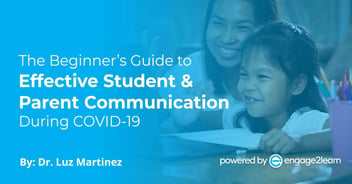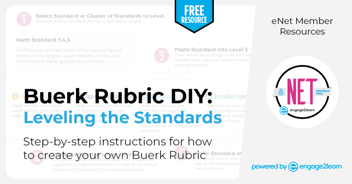The Importance of Culture | engage2learn
Or: Striving for a Mickey Mouse Operation
by Amanda Stephens
Long before I had ever heard of organizational culture or began to consider its importance in developing an innovative workplace, I saw a sign on my college campus: the distinctive shape of Mickey Mouse, topped with four words: Magic. Experience. Paid Internship.
Honestly, I wasn’t thinking about Disney’s amazing organizational culture or the fact that they had their white-gloved, four-fingered hands in all sorts of media. I just wanted to spend eight months at Walt Disney World!
Looking back, however, this experience would shape my expectations of the corporate world.
The first day of work at Walt Disney World is an all-day class called Traditions, which immerses newcomers in the whys and hows of Disney history and culture. Fun, but also serious business. “You are important,” Traditions teaches, “Without you, we cannot make magic. We want your best for our guests, and we trust you to make decisions that put the guest experience first.”
So on your very first day, you’re told that you’re not an employee, you’re part of an experience. From the custodians to the managers, from costuming to food service, everyone is important. Disney builds its base on this culture, and it left a profound mark on me.
We’ve all had the jobs that pay the bills but leave us wanting something more, right? Where we went to work every day but felt a little empty? When we counted down the hours until we’d earned another sick day?
You are not crazy; culture really does make that much of a difference!
So that is why engage2Learn (e2L) feels like home. We all have roles, and each role is important. No one is “just” anything. Everyone is an integral part of advancing the e2L mission. Rather than counting down until the next sick day, people are more prone to work late to get the job done. Instead of dragging into work every day relying heavily on caffeine, people are more likely to get started early to get ahead of their work for the day. People who continue checking their work emails during family emergencies and are willing to forego a well-earned vacation to make things happen occasionally.
It’s true, people may be willing to go above and beyond if requested to do so, but the trick is in creating a culture that inspires people to want to go the extra mile. It makes them more likely to not only work harder but to think outside the box for more effective solutions!
It’s true, people may be willing to go above and beyond if requested to do so, but the trick is in creating a culture that inspires people to want to go the extra mile. Click To TweetAs both supervisors and employees, we tend to get caught up in the drudgery that comes along with any job: meetings, reports, finishing tasks, long calls, and brainstorming sessions. It can be too easy to lose sight of what really matters: the end result.
Van France, the creator of the one and only Disney University, put it this way: Budgets, schedules, reports, union negotiations, training programs, meetings, handbooks, and the other endless things which take up your time “are of no value unless they end up producing A HAPPY GUEST.”
Certainly, this doesn’t mean that we should stop having meetings, but it does make you step back and take a look at what you are doing: “Will this meeting eventually lead to more learners becoming competent in Life Ready Skills?” “Is this just a report, or is it a way for school administrators to measure the effectiveness of teaching methods?” So if the result of this task doesn’t move the mission forward, any employee should feel free–if not encouraged–to ask “Why are we doing this?” and receive a well thought out answer.
That’s the real potential of culture–empowering people to move the organization forward of their own volition. Moreover, that’s why it’s critical in any organization genuinely interested in growing not only larger, but better.
That’s the real potential of culture--empowering people to move the organization forward of their own volition. Click To Tweet


